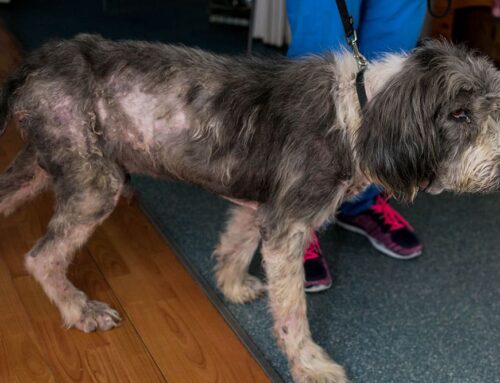At MountainView Veterinary Hospital in Denville, New Jersey, we believe preventive care is the cornerstone of lifelong wellness—and vaccinations are one of the most powerful tools we have to protect pets at every age. Whether you’re caring for a playful puppy, a curious kitten, or a senior companion, timely vaccination ensures your pet stays protected from a wide range of contagious (and often deadly) diseases.
This guide covers the core and optional vaccines for dogs and cats, outlines vaccination needs by life stage, and highlights why personalized vaccine schedules matter.
Contact us today to schedule your pet’s next wellness visit.
Why Vaccines Matter for Dogs and Cats
Vaccines train your pet’s immune system to recognize and combat disease-causing pathogens. By mimicking exposure to viruses or bacteria—without causing illness—vaccines help pets build strong defenses that can prevent severe disease or reduce symptoms.
For a general overview, visit Vaccinations for Pet Owners – AVMA.
Vaccination by Life Stage
Every pet has unique needs, but their life stage plays a major role in shaping their vaccination plan.
Puppies and Kittens
Young pets are especially vulnerable due to immature immune systems. Starting vaccines at 6–8 weeks of age with boosters every 3–4 weeks until 16 weeks old is critical.
Explore these life stage guides to better understand how health needs evolve:
- The Journey of a Lifetime: Understanding Your Dog’s Life Stages
- A Journey Through the Ages: Understanding Your Cat’s Life Stages
Adults
After completing their initial vaccine series, adult pets need regular boosters to maintain immunity—typically every 1–3 years depending on lifestyle, vaccine type, and local regulations.
Seniors
Senior pets may require fewer vaccines but still benefit from protection, especially if their immune system weakens or if they remain active in the community.
Dog Vaccines: Core and Optional
Core Canine Vaccines
- Rabies – Legally required in NJ; can be fatal to pets and humans. World Rabies Day – Can My Pet Get Rabies?
- Distemper – A serious, often fatal virus affecting multiple organ systems. Learn about canine distemper
- Parvovirus – Causes severe vomiting and diarrhea, especially in puppies. Parvovirus Update – AAHA
- Adenovirus – Protects against infectious canine hepatitis.
Lifestyle-Based Dog Vaccines
- Leptospirosis – A waterborne bacterial infection. Guide to Leptospirosis – AAHA
- Lyme Disease – Transmitted by ticks, especially in wooded areas. Lyme Disease in Dogs – AVMA
- Bordetella (Kennel Cough) – A key component of the Canine Infectious Respiratory Disease Complex, particularly relevant for social dogs. Read more at AKC
- Canine Influenza – A highly contagious respiratory virus. Dog Flu Vaccine – AKC
- Rattlesnake Vaccine – Recommended for dogs hiking or living in snake-prone areas. Learn more from PetInsurance.com
Cat Vaccines: Core and Optional
Core Feline Vaccines
- Rabies – Required by law in most areas, including NJ.
- FVRCP Combo Vaccine – Protects against feline viral rhinotracheitis, calicivirus, and panleukopenia.
Learn more about vaccine benefits and risks from the Cornell Feline Health Center.
For additional insights, explore What Should I Know About My Cat’s Vaccinations? – AAHA
Lifestyle-Based Cat Vaccines
- FeLV (Feline Leukemia Virus) – Critical for outdoor cats or multi-cat households. FeLV info – Cornell
- Bordetella – Recommended for cats in shelters or multi-pet homes. Bordetella in Cats – iCatCare
- Chlamydia – Can cause upper respiratory infections; often combined with FVRCP. Chlamydia Vaccine for Cats – VetStreet
Learn more about feline respiratory infections from ASPCA Pro
What to Expect After Vaccination
Common, Mild Side Effects
- Temporary soreness at the injection site
- Mild lethargy or low-grade fever
- Decreased appetite
These typically resolve within 24–48 hours.
Serious (but Rare) Reactions
- Facial swelling
- Hives or vomiting
- Collapse or breathing difficulty
If you notice any of these symptoms, contact us immediately or head to an emergency clinic.
Why Regular Wellness Visits Matter
Vaccines are most effective when paired with regular veterinary checkups. These appointments allow us to:
- Assess current protection levels
- Recommend adjustments based on travel, behavior, or exposure risks
- Identify early signs of illness before they progress

Here’s why routine vet visits are so important – AAHA
Your Partner in Preventive Pet Health
At MountainView Veterinary Hospital, we don’t just give shots—we offer personalized vaccination planning grounded in medical science and tailored to your pet’s unique life stage and lifestyle. Whether it’s time for first vaccines or a booster, we’re here to keep your dog or cat safe, healthy, and thriving.









Leave A Comment